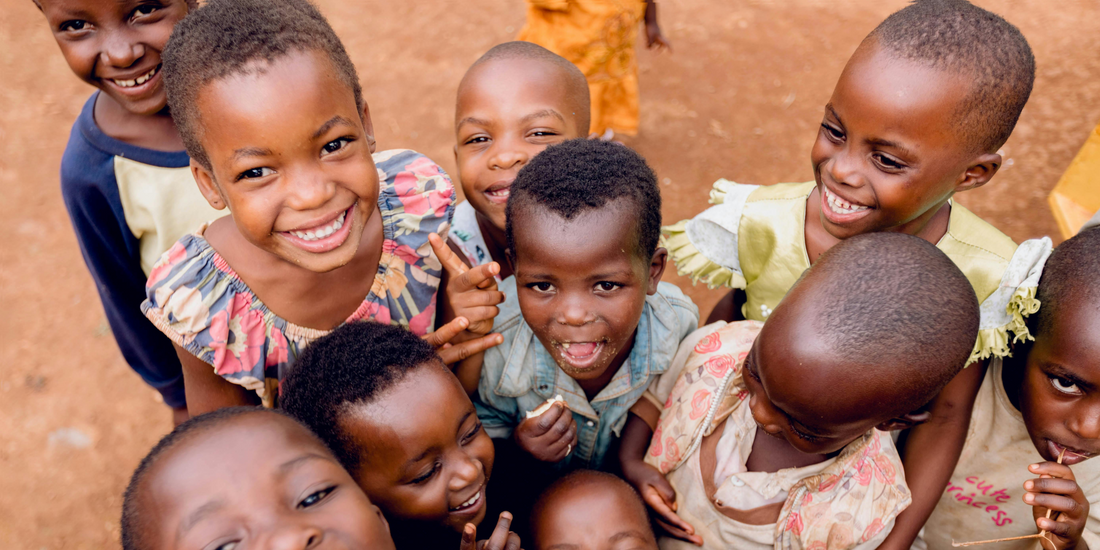
How can we make a difference?
Share
South Africa, a nation known for its rich history, diverse culture, and breathtaking landscapes, faces significant challenges when it comes to the welfare of its youth, particularly those from underprivileged backgrounds. Despite the country’s advancements in various sectors, many young South Africans still face barriers to access education, employment, and opportunities for personal development. However, through concerted efforts from both government and civil society, there are numerous ways South Africa can empower its underprivileged youth and help them overcome these challenges.
Investing in Education and Skills Development
Education remains one of the most powerful tools to break the cycle of poverty. Unfortunately, many underprivileged youths in South Africa face systemic barriers to quality education, including overcrowded classrooms, lack of resources, and insufficient teacher training. To make a lasting impact, the South African government, alongside private sectors and NGOs, should focus on:
Improving school infrastructure: Investing in safe, well-resourced schools, particularly in rural and marginalized areas, ensures that students have a conducive learning environment.
Increasing access to higher education: Offering scholarships, bursaries, and affordable university fees can make tertiary education accessible to youths who otherwise wouldn’t be able to afford it.
Vocational training and apprenticeships: Not all young people thrive in traditional academic settings. By expanding access to vocational training programs in fields like construction, healthcare, and technology, South Africa can equip its youth with valuable skills that will help them find employment and contribute to the economy.
Expanding Youth Employment Opportunities
Unemployment is one of the most pressing challenges faced by South African youths. With many young people lacking experience and opportunities to enter the job market, it’s crucial to create pathways for employment. Some of the ways South Africa can make a difference include:
Promoting youth entrepreneurship: South Africa can provide financial and mentorship support to young entrepreneurs. Programs that offer seed capital, business development courses, and networking opportunities can help young South Africans start their own businesses and create jobs in their communities.
Youth-targeted employment programs: The government can introduce initiatives that incentivize companies to hire young people. Partnerships with private corporations, NGOs, and educational institutions can help create job placement programs, internships, and apprenticeships for young individuals, allowing them to gain the experience they need.
Social entrepreneurship and community-led initiatives: Empowering youths to solve problems within their communities through social entrepreneurship is another way to address local issues while creating employment. Youth-led initiatives can improve conditions in underserved areas and encourage a sense of ownership and responsibility.
Mentorship and Leadership Development
For many underprivileged youths, exposure to positive role models can be life-changing. South Africa can focus on creating mentorship programs where successful individuals from various industries volunteer their time and expertise to guide young people.
Youth mentorship programs: By connecting young people with mentors who can offer advice, share personal experiences, and provide emotional support, South Africa can help cultivate the next generation of leaders. Whether through one-on-one mentorship or group-based coaching, such programs can instill confidence and offer practical advice on overcoming life's challenges.
Leadership training: In addition to mentorship, leadership development initiatives, both formal and informal, can empower youth to take charge of their futures. Encouraging young people to get involved in leadership roles within their schools, communities, and organizations helps build skills in problem-solving, collaboration, and communication.
Fostering Access to Mental Health Support
The mental health challenges faced by underprivileged youth in South Africa cannot be underestimated. The stress of poverty, violence, and lack of opportunity can take a toll on the mental well-being of young people. It's essential for the country to ensure access to mental health services for youth in need.
School-based mental health services: Schools are an ideal platform for addressing mental health issues, as many young people spend a significant portion of their time there. Providing counseling services, workshops on coping skills, and mental health awareness campaigns can help reduce stigma and encourage young people to seek help.
Community mental health programs: Local organizations and NGOs can be instrumental in providing mental health support through counseling, peer support groups, and outreach programs in communities with high levels of distress. These services can offer critical care and provide safe spaces for youths to talk about their challenges.
Promoting Social Inclusion and Equality
Addressing inequality in all its forms is vital for the future of South Africa's underprivileged youth. Discrimination based on race, gender, or socioeconomic status remains a significant barrier to success. To create a fairer society:
Promoting diversity and inclusion: South Africa can work towards more inclusive educational and employment environments that ensure young people from all walks of life have an equal chance to succeed. Initiatives that encourage racial, gender, and socioeconomic diversity in leadership positions, schools, and businesses help create a more equitable environment for underprivileged youth.
Social safety nets: Providing a robust social safety net, including food security, healthcare, and housing assistance, ensures that young people from disadvantaged backgrounds are given the basic support they need to thrive.
Building Stronger Communities
Finally, community involvement plays a pivotal role in shaping the future of underprivileged youth. South Africa can make a lasting impact by encouraging and supporting grassroots organizations and community-driven initiatives.
Community centers and youth hubs: Establishing safe, well-equipped spaces where young people can gather, engage in activities, receive support, and access resources is key. These spaces can serve as launchpads for personal development, educational enrichment, and social connections.
Cultural and recreational activities: By promoting sports, arts, and cultural activities, South Africa can provide youth with outlets for creativity, self-expression, and emotional well-being. These activities can also help young people build resilience, teamwork, and leadership skills.
Conclusion
South Africa’s underprivileged youth represent an untapped source of potential. With the right investments in education, skills development, employment opportunities, mental health, and community empowerment, South Africa can pave the way for a brighter, more inclusive future for its younger generations. While challenges remain, the steps outlined above can go a long way in ensuring that no young person is left behind. By fostering a more supportive, equitable, and opportunity-rich environment, South Africa can truly make a difference in the lives of its underprivileged youth, unlocking their potential and ensuring they contribute meaningfully to the nation’s progress.
